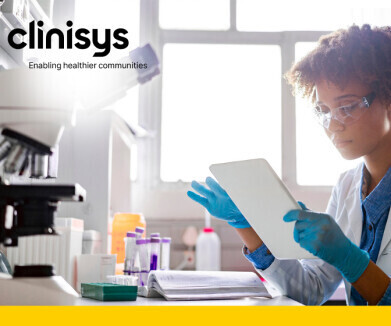IT solutions
Equipping scientists to harness digitalization is key to driving laboratory innovation
Apr 02 2024
Digital transformation can deliver significant benefits for laboratories and their customers, be that through improvements in efficiency, accuracy or insight. But investing in the latest, greatest technology is not an immediate path to success. Technology is a key enabler when harnessed correctly, but it's equally possible to invest in the wrong software for the business needs, or even implement the right software but fail to fully leverage its capabilities and reap the expected rewards. When considering the role of digital in driving laboratory innovation, a broader picture needs to be considered.
Setting the digital transformation strategy
Digital transformation encompasses various aspects, including processes, culture, relationships, products, services, and resources, alongside technology. It plays a crucial role in overall organizational improvement. The process involves evaluating how an organization operates, connects, and interacts, with a focus on identifying areas for improvement to create greater value. The key benefits that digital transformation can bring include improving efficiency, reducing manual tasks, faster access to data and increasing collaboration. Some examples of industry-specific impact: in healthcare, for example, digital transformation can lead to improved patient outcomes through efficient, connected care pathways and accurate diagnoses, while in the pharmaceutical industry, it can help accelerate drug discovery and development, reducing time to market. Digital systems can also benefit the food and agricultural sectors by ensuring a complete chain of custody from raw materials to final products, enhancing quality and safety.
However, most laboratories are not yet future ready. Legacy systems and data silos that are not equipped for today’s modern technology landscape hinder efficiency and mean access to data is often poor. For labs to thrive, organizations need to support scientists in developing the skills, experience, and technology to drive innovation and data-led decision-making.
The role of LIMS in digital transformation
By connecting critical laboratory data from many sources across multiple industries, companies like Clinisys, working in partnership with customers, can enable healthier communities. Achieving this means removing unnecessary barriers that often get in the way of efficient data-driven decision making which is increasingly seen as critical to delivering sustainable solutions to some of the world’s most complex challenges. Clinisys Laboratory SolutionsTM are built on a single platform to enable healthcare and scientific laboratories to futureproof their LIMS investment. The Clinisys PlatformTM serves as the foundational data architecture. Industry-specific laboratory applications and processes are built on top of this platform to deliver tailored solutions. Designed with future innovation in mind, the platform gives laboratories the freedom to integrate emerging technologies to further improve accuracy and efficiency.
Flexibility is a crucial factor. Laboratories need to have confidence that their investments will not only meet today’s demands but also adapt to unforeseen challenges in the future.
Find out more about how Clinisys can help laboratories harness digitalization and innovation.
Digital Edition
Lab Asia 32.2 April
April 2025
Chromatography Articles - Effects of small deviations in flow rate on GPC/SEC results Mass Spectrometry & Spectroscopy Articles - Waiting for the present to catch up to the future: A bette...
View all digital editions
Events
Apr 22 2025 Hammamet, Tunisia
Apr 22 2025 Kintex, South Korea
Analytica Anacon India & IndiaLabExpo
Apr 23 2025 Mumbai, India
Apr 23 2025 Moscow, Russia
Apr 24 2025 Istanbul, Turkey



















